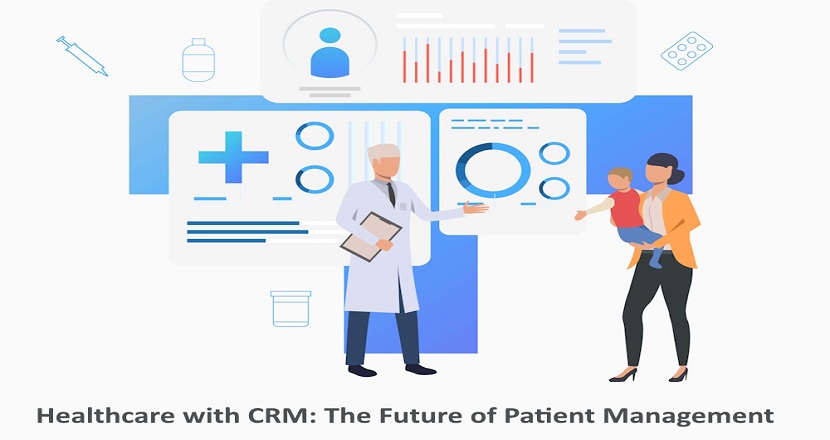Successfully managing patient relationships is at the heart of any successful healthcare provider’s strategy. An essential tool for achieving this is the Customer Relationship Management system, commonly known as CRM. CRMs in healthcare aim to enhance the patient experience and streamline operations within healthcare facilities. They serve to improve the efficiency of patient management, ensuring seamless communication and effective scheduling.
The Current State of Patient Management
Traditionally, patient management has posed significant challenges to healthcare providers. These challenges range from maintaining comprehensive and up-to-date patient records to ensuring timely communication with patients for appointments and follow-ups. To illustrate, consider a health facility without a CRM system. The facility constantly grapples with disorganized patient data, communication gaps, and scheduling conflicts. All these issues lead to a less-than-ideal patient experience and operational inefficiencies.
CRM and Efficiency in Healthcare
Implementing a CRM system can drastically improve efficiency in healthcare. At its core, a CRM system organizes patient data into a central database, accessible to all relevant healthcare professionals. This streamlined data management helps avoid unnecessary repetition of diagnostic tests, potential medical errors due to missing information, and delays in treatment. Additionally, CRM improves communication and scheduling, ensuring that patients are properly informed of their appointments and treatment plans.
- Centralized Patient Data: A CRM system serves as a single repository for all patient data, ensuring all healthcare professionals have access to the same information. This prevents discrepancies and inconsistencies in patient records.
- Improved Communication: CRM systems allow for automated and efficient communication with patients. They can send reminders for appointments, updates on treatment plans, and other important information.
- Enhanced Scheduling: By integrating a CRM system, healthcare providers can better manage their scheduling, reducing instances of double bookings or missed appointments.
- Increased Efficiency: With all data in one place, healthcare professionals can easily access necessary information, leading to quicker and more effective decision-making.
- Improved Patient Experience: With timely communication, organized scheduling, and a personalized approach, patients enjoy a better experience, which in turn, can lead to higher patient satisfaction and loyalty.
CRM as The Future of Patient Management
CRM is rapidly changing the landscape of patient management. Its ability to centralize patient data, improve communication, and enhance scheduling makes it an indispensable tool for healthcare providers. In the future, we can expect to see an increased adoption of CRM systems in healthcare, leading to improved patient experiences and greater operational efficiencies.
- Personalized Care Plans: CRM systems enable healthcare providers to tailor treatment plans to each patient’s specific needs. By leveraging patient data, medical professionals can make informed decisions and provide personalized care.
- Data Security: With robust security testing measures in place, CRM systems ensure that sensitive patient information is protected from unauthorized access or breaches.
- Cost-Effective: By streamlining processes and improving efficiency, CRM systems can significantly reduce operational costs, leading to financial savings for healthcare providers.
- Scalable: CRM systems are scalable and can grow with the healthcare provider’s needs. This adaptability makes them a sustainable choice for both small practices and large hospitals.
- Integration with Other Systems: CRM systems can integrate with other software solutions, such as Electronic Health Records (EHR), improving interoperability and making data management even more efficient.
Case Studies
Several healthcare providers have successfully implemented CRM systems and experienced their benefits firsthand. These case studies demonstrate positive impacts on patient management, including improved patient satisfaction scores, reduction in resource wastage, and enhancement in operational efficiency.
Example 1: Cleveland Clinic
Cleveland Clinic utilized a CRM system to manage its large and diverse patient base efficiently. The system allowed for secure and organized data storage, seamless communication, and effective patient tracking. As a result, Cleveland Clinic experienced a significant reduction in operational costs and improved patient outcomes.
Example 2: Kaiser Permanente
Kaiser Permanente, a leading healthcare provider, adopted a CRM system to facilitate better health management of its patients. The system’s integration with EHR enabled medical professionals to access relevant patient data in real-time, enhancing decision-making and personalized care delivery. This strategic move resulted in marked improvements in patient care and operational efficiency.
CRM for Healthcare: Opportunities and Advancements
Customer Relationship Management (CRM) systems have revolutionized the way healthcare providers connect with their patients and manage their operations. The utility of a CRM system in healthcare extends beyond typical customer service functions. It serves as a comprehensive platform that organizes patient data, streamlines communication, and supports personalized care delivery.
In an era where patient engagement and satisfaction have become critical indicators of a healthcare provider’s success, CRM systems offer a strategic advantage. They enable healthcare professionals to access real-time patient data, track patient interactions, and manage appointments efficiently. This leads to improved resource allocation, reduced operational costs, and subsequently, better patient outcomes.
Furthermore, the integration of CRM systems with Electronic Health Records (EHR) has opened new avenues for personalized care. Healthcare professionals can leverage this integrated platform to make informed decisions and provide targeted healthcare services.
Conclusion
CRM for healthcare has emerged as a robust solution for patient management, amplifying the sector’s efficacy and streamlining its operations. By facilitating improved patient experiences and operational efficiency, CRM software for healthcare undoubtedly represents the future of patient management. As such, healthcare providers must adopt this cutting-edge technology and leverage its benefits. As CRM for healthcare continues to evolve and integrate with other healthcare systems, it is set to redefine patient care delivery. Adhering to the adage, “the customer is king,” in healthcare, the paramount importance is placed on patients.
CRM for healthcare enables providers to focus on personalized care while enhancing operational efficiency, leading to overall excellence. The integration and application of CRM for healthcare promise a bright future with superior patient outcomes and a more effective healthcare system. It’s high time we harnessed the full potential of CRM for healthcare. Why delay? Elevate your healthcare organization with CRM today. Stay abreast of the latest advancements and continue to incorporate this robust tool in your patient management strategies.
